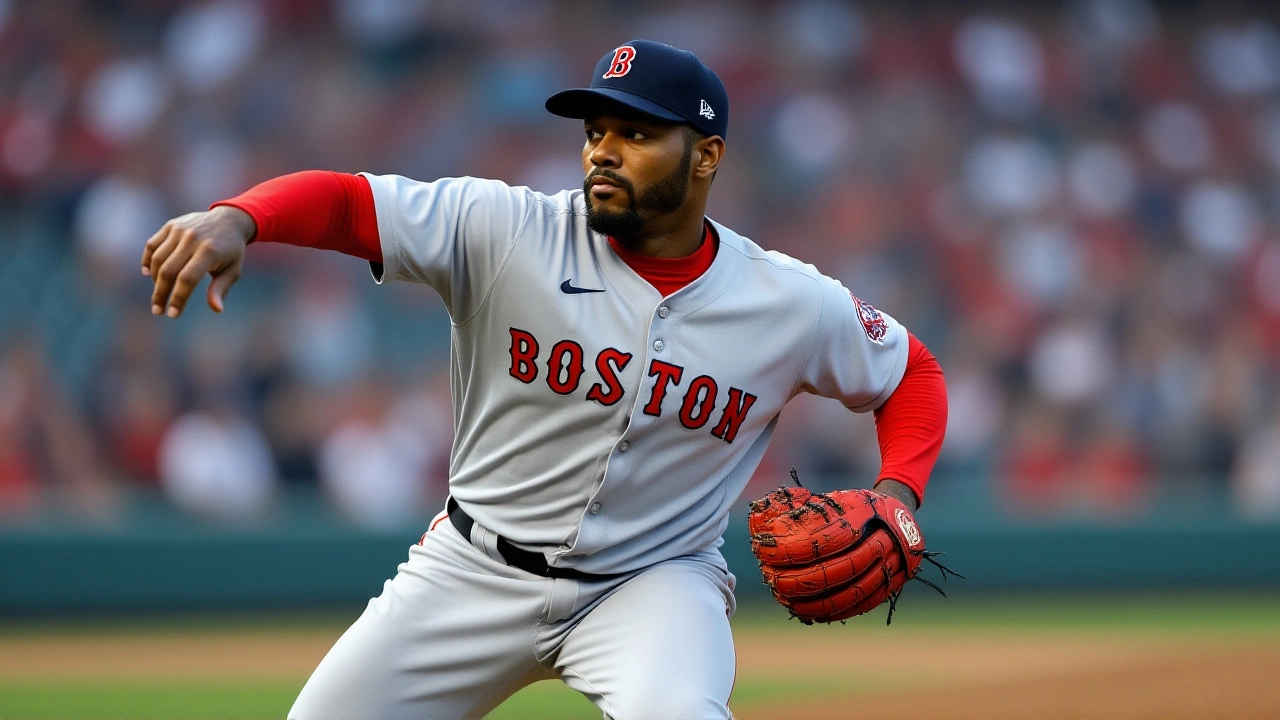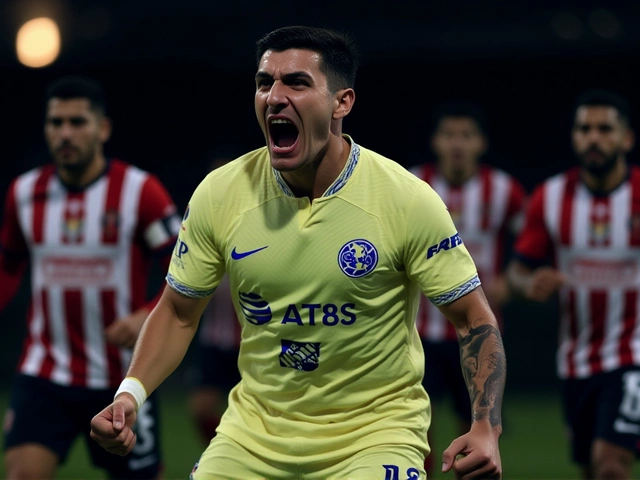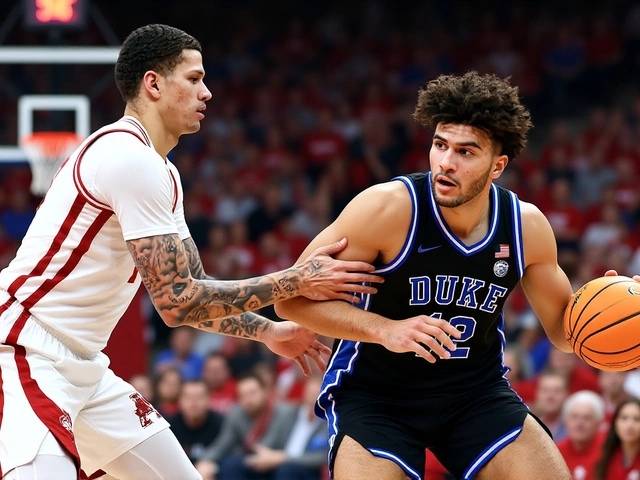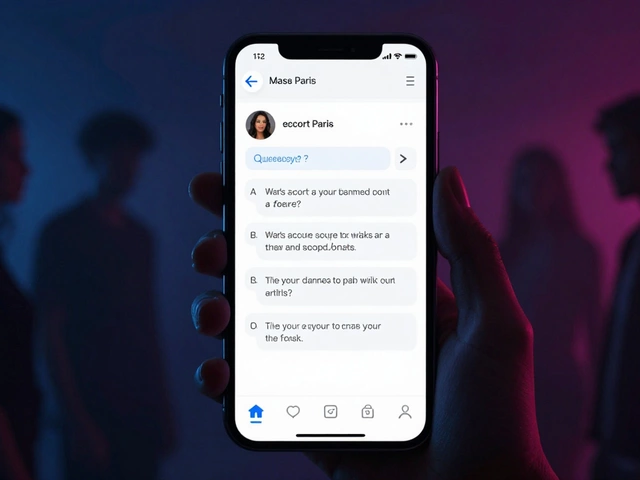When Aroldis Chapman, the 37‑year‑old Cuban relief pitcher for the Boston Red Sox, unleashed a 102.3 mph fastball on April 19 2025, he didn’t just file another save – he carved his name into a sixth franchise’s record books.
The rocket‑like pitch was logged at Fenway Park during the Red Sox’s 5‑3 win over the New York Yankees. The Statcast system, which has tracked pitch speeds since 2008, instantly flagged the throw as the fastest ever recorded by a Boston pitcher. That makes Chapman the velocity record‑holder for every team he’s ever suited up with – a milestone no other player has achieved.
Record‑Breaking Throw for the Red Sox
For the ninth inning that night, Chapman entered with a two‑run lead and a full 100‑plus‑mph arsenal. The batter swung and missed on the first two deliveries, then took a look at a 102.3 mph offering that blazed past the plate like a bullet. Though the ball slipped for a home run off Kurt Suzuki later in the inning, the earlier strike cemented Chapman’s place in Boston history. The pitch was recorded by Statcast’s high‑speed cameras and immediately entered the franchise’s record log, surpassing the previous high of 101.9 mph set by a former Red Sox closer in 2019.
Boston’s bullpen coach, Brian Butterfield, smiled, "He’s still throwing heat that makes hitters look up at the sky. At 37, most guys are slowing down, but Aroldis is defying the usual aging curve."
How Chapman’s Speed Has Evolved Over Six Teams
Chapman’s career began in 2009 with the Cincinnati Reds. On September 24 2010, he launched a 105.8 mph fastball at PETCO Park, a delivery that still holds the Guinness World Record for the fastest pitch by a male pitcher.
After six seasons in Cincinnati, he bounced around the league – a stint with the Chicago Cubs in 2015, a dominant run with the New York Yankees from 2016‑2019, a year‑long chapter with the Kansas City Royals in 2020, a brief but fiery spell with the Texas Rangers in 2021, and a final stop with the Pittsburgh Pirates before landing in Boston.
Each stop produced a new team‑specific speed high: 101.2 mph in Chicago, 102.1 mph in New York, 101.5 mph in Kansas City, 102.6 mph in Texas, and 102.0 mph with Pittsburgh. The Boston mark of 102.3 mph now tops that list, sealing his status as the only pitcher to own a velocity record in six different franchises.
Reactions From Teammates, Opponents, and Analysts
Red Sox captain Xander Bogaerts said, "When you see Aroldi’s arm snap that fast, you know the opponent is in trouble before the ball even gets to the plate." Yankees third‑base coach Terry Francona (yes, the Yankees’ former manager now with Boston) joked, "I’ve been hunting him for years, and he’s still the fastest man I’ve ever faced in a uniform."
Sabermetricians are already feeding the data into predictive models. One analyst at FanGraphs noted, "Chapman’s average fastball velocity over his last 50 outings is 100.2 mph, an outlier for anyone past 30. It skews the league’s velocity distribution and forces hitters to adjust their timing across the board."
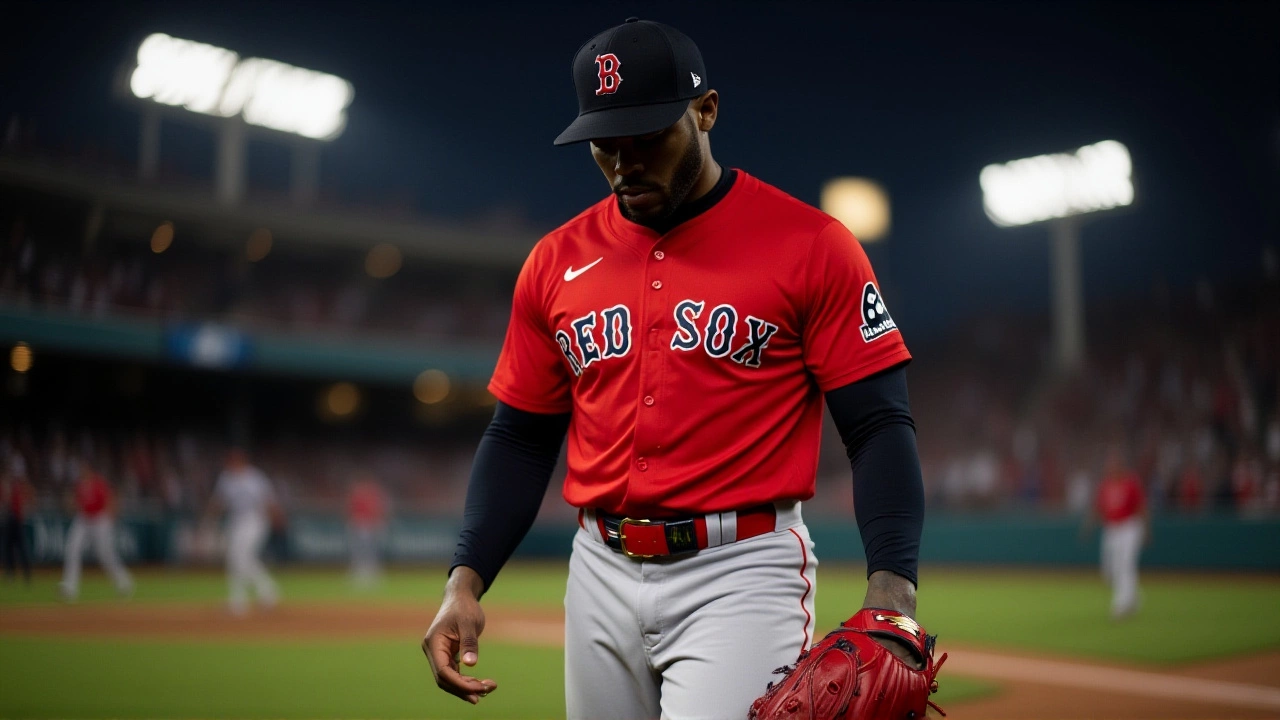
Why Velocity Records Matter in the Statcast Era
Since Statcast’s debut in 2008, baseball has become a sport of data. Pitch speed, spin rate, and release point are now as scrutinized as batting average once was. A record‑setting fastball does more than wow fans; it reshapes scouting reports, informs contract negotiations, and even influences rule‑making discussions about pitcher safety.
For the Red Sox, Chapman’s record could affect how they allocate bullpen roles. As general manager Chaim Bloom explained, "Having a closer who can still touch triple‑digit speed at 37 gives us flexibility to pair him with younger arms in high‑leverage situations without sacrificing firepower."
Looking Ahead: Chapman’s Legacy and the Future of Power Pitching
At 37, Chapman is already a Hall‑of‑Fame candidate. His 340 career saves, 146 of them with Cincinnati, sit comfortably among the top‑ten all‑time. The new record adds a narrative twist: longevity coupled with sustained velocity.
Will other pitchers try to emulate his regimen? He’s been vocal about his training, blending heavy‑weight conditioning with a strict diet low in processed sugars. A video released by the Red Sox on May 30 2025 shows Chapman’s daily routine – sprint drills, weighted ball throws, and a surprisingly gentle yoga session. "It’s about keeping the arm fresh, not just raw power," he told the camera.
In the broader picture, Chapman’s feat may spark a renewed emphasis on velocity in younger pitchers. College programs are already experimenting with biomechanics labs to replicate his arm‑path efficiency. If anyone can prove that a 100‑plus‑mph fastball can be a career‑long weapon, it’s Aroldis.
Key Facts
- Record throw: 102.3 mph on April 19 2025 at Fenway Park.
- Sixth franchise record – Reds, Cubs, Yankees, Royals, Rangers, Pirates, Red Sox.
- All‑time MLB fastball record: 105.8 mph set in 2010 (Guinness World Record).
- Career saves: 340 (146 with Cincinnati).
- Age: 37 (born February 29 1988).
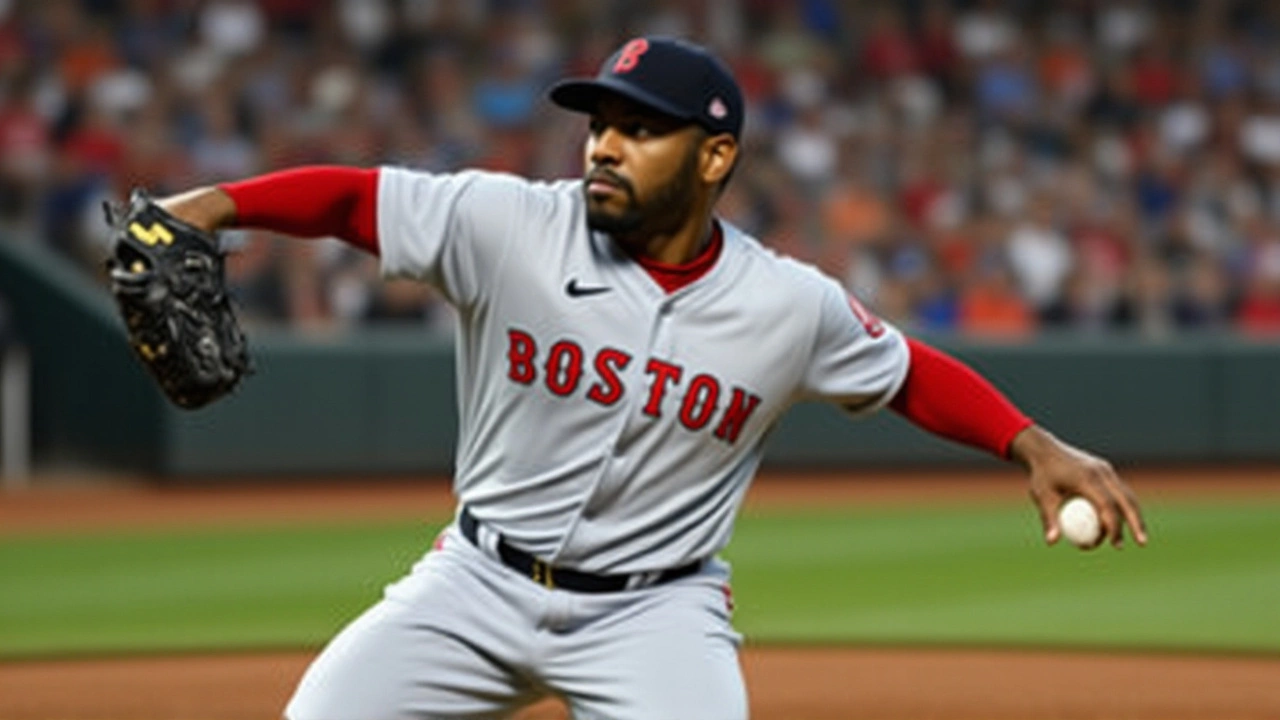
Frequently Asked Questions
How does Chapman’s new record affect the Red Sox bullpen strategy?
General manager Chaim Bloom says Chapman’s continued elite velocity lets Boston pair him with younger relievers in high‑leverage spots, preserving stamina while still threatening opponents with triple‑digit heat.
What training methods does Chapman use to maintain his speed at 37?
He follows a regimen that blends heavy‑weight strength work, weighted‑ball drills, sprint intervals, and daily yoga for flexibility – a routine highlighted in a Red Sox‑produced video released May 30 2025.
How does this record compare to his historic 105.8 mph pitch?
The 105.8 mph fastball recorded in 2010 with Cincinnati remains the all‑time MLB record (Guinness World Record). Chapman's 102.3 mph is the fastest ever for Boston, but still three miles per hour shy of his career‑high.
Which other teams did Chapman set velocity records for?
He holds the franchise‑fastest pitch for the Reds (105.8 mph), Cubs (101.2 mph), Yankees (102.1 mph), Royals (101.5 mph), Rangers (102.6 mph), and Pirates (102.0 mph) – making him the sole player with six distinct team marks.
What does this mean for the future of power pitching in MLB?
Chapman’s longevity at high velocity could inspire more clubs to invest in biomechanics and conditioning programs aimed at preserving arm speed, potentially ushering in a new era where 100‑plus‑mph fastballs become a regular part of a pitcher’s career.
